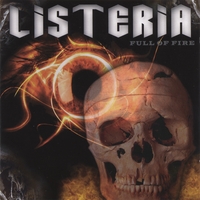So much like Canada in 2008, and the U.S. in 1998. Listeria kills.
After two cold-cut deaths last year in New Zealand, a health spokesthingy says they “routinely hands out the brochures” and it no longer provides chilled pre- cooked meats to patients.
Do people really have to die before changes are implemented? Isn’t that why dieticians are in hospitals? Does anyone with a medical background know  anything about listeria?
anything about listeria?
It’s not like it’s something new.
Pay attention.
Marty Sharpe of the Dominion Post writes Patricia Hutchinson died in her husband’s arms after three weeks on life support while her frail body battled an aggressive foodborne infection.
She was one of two women who died from a listeria outbreak in Hawke’s Bay that was linked to contaminated cold meat.
Mrs Hutchinson’s death has resulted in an apology from Hawke’s Bay District Health Board, and a national review of how risks of the disease are explained to patients.
The 68-year-old great-grandmother was admitted to hospital on May 5 last year suffering symptoms similar to a stroke. It was later discovered she had contracted listeria. She died on June 5.
A year on, her husband, Robin Hutchinson, is ready to talk about events leading up to the death of his wife of 46 years, and how he believes she was let down by the DHB.
Mrs Hutchinson had type 2 diabetes, which she controlled through diet, and in 2011 was diagnosed with Crohn’s disease.
In February, a locum gastroenterologist at the hospital prescribed azathioprine – an immuno- suppressant, used to treat autoimmune diseases like Crohn’s, where someone’s immune system reacts against their own body.
After listeria was diagnosed, a Ministry of Health investigator spoke to Mr Hutchinson and gave him a brochure called “Avoiding Listeria.”
“Can you imagine how that made me feel?” he said. “In it, very clearly, it lists the people at serious risk of listeriosis and what they should avoid eating.
“Among those at risk are people with damaged immune systems. Had my wife or I been aware of this she would most certainly not have eaten those foods,  including the ham at the hospital. She was extremely particular about her diet,” he said.
including the ham at the hospital. She was extremely particular about her diet,” he said.
He wrote to the DHB a fortnight after Mrs Hutchinson’s death and asked for three things; an apology; an assurance that patients with a low immune system would be provided the listeria brochure; and a claim for payment towards funeral costs.
He met with DHB staff on July 20. In August, DHB chief executive Kevin Snee wrote to Mr Hutchinson: “We sincerely apologise that your wife was not informed of the increased risk of developing listeria when she saw Dr Mark Dell’Aglio, locum gastroenterologist, who prescribed azathioprine.”
She saw Dr Dell’Aglio in February. He returned to the US in March and had not been involved in the investigation, Dr Snee said.
The DHB declined to contribute toward funeral costs. ACC also refused to approve a claim as it “does not meet the criteria for a treatment injury”. That decision is to be reviewed in August.
